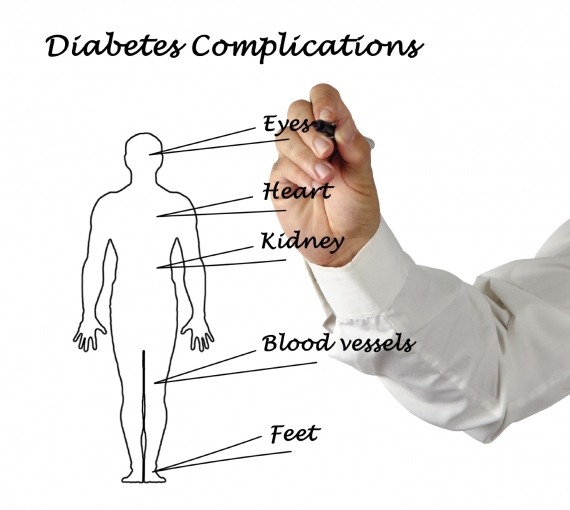Diabetic Eye Doctor
If you or someone you care about is diabetic, it’s important to find an eye doctor who is knowledgeable about and experienced with diabetic eye disease.
Diabetic patients from Cape Coral, Fort Myers, Lee County, and all over Southwest Florida have been coming to Elmquist Eye Group since 1992 for the highest quality eye care, including diabetic eye exams, diabetic retinopathy evaluation and treatment, glaucoma evaluation and treatment, cataract evaluation and treatment, and other conditions that may affect everyone from children to seniors.
 Trevor Elmquist, DO, is one of America’s Top Doctors in ophthalmology as determined by Castle Connolly Medical Ltd. He is a board certified ophthalmologist and a fellow of the American Academy of Ophthalmology who earned his medical degree from the University of Health Sciences College of Osteopathic Medicine in Kansas City, Missouri. Before founding Elmquist Eye Group, he provided eye care at Walter Reed Army Medical Center and Homestead Air Force Base.
Trevor Elmquist, DO, is one of America’s Top Doctors in ophthalmology as determined by Castle Connolly Medical Ltd. He is a board certified ophthalmologist and a fellow of the American Academy of Ophthalmology who earned his medical degree from the University of Health Sciences College of Osteopathic Medicine in Kansas City, Missouri. Before founding Elmquist Eye Group, he provided eye care at Walter Reed Army Medical Center and Homestead Air Force Base.
Dr. Elmquist’s partner, Kate Wagner, OD, and his associate, Nina Burt, OD, are board certified optometrists who provide comprehensive eye care services. With state-of-the-art facilities, the Elmquist team is committed to providing all patients with outstanding treatment. They are specially trained in diabetic eye diseases and can evaluate and recommend treatments to help prevent them from progressing.
Diabetic Eye Disease
People with diabetes are 25 times more likely to lose vision than those who are not diabetic, according to the American Academy of Ophthalmology. Diabetics face a number of eye complications that are important to detect and treat early, before they cause vision loss or blindness. They include:
- Diabetic Retinopathy – A healthy retina is necessary for good vision; however, high blood sugar levels can damage blood vessels in the retina and cause vision loss. Diabetic retinopathy is more likely to affect individuals who have had diabetes for a long time or whose diabetes is poorly controlled. There are typically no symptoms or pain, and you may not notice any change in your vision in the early stages. For this reason, it’s important to have a dilated eye exam at least once a year to detect and treat it early.
- Macular Edema – The macula is the tissue at the back of the eye that is responsible for seeing fine detail. Macular edema is caused by damaged blood vessels in the retina that leak fluid into the macula. It is often a complication of diabetic retinopathy, and is the most common reason for vision loss in people with diabetes. Like diabetic retinopathy, it can be treated with a laser to reduce swelling and seal off leaking blood vessels. Elmquist Eye Group can detect macular edema with Optical Coherence Tomography (OCT) in our Fort Myers office.
- Cataract – According to the American Diabetes Association, individuals with diabetes are 60% more likely to develop a cataract, often at younger ages, than individuals without diabetes. If cataracts interfere with your vision they can be removed and an artificial intraocular lens can be implanted to restore clear vision. For diabetic patients, retinopathy can get worse after removal of the lens, and glaucoma may start to develop.
- Glaucoma – Glaucoma occurs when pressure builds up inside the eye, leading to optic nerve and retinal damage and vision loss. Individuals with diabetes are 40% more likely to suffer from glaucoma than individuals without diabetes. Loss of sight from glaucoma can often be prevented with early treatment.
Most diabetic individuals have nothing more than minor eye disorders. Your eye doctor at Elmquist Eye Group can help you keep minor problems under control through regular dilated eye exams. Keeping your blood sugar levels and blood pressure under control will also help. Get in touch with us today at (239) 936-2020 to schedule an eye exam so that we can help you keep your eyes healthy and preserve your vision.
